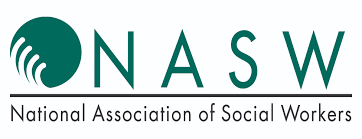|
|
Moral Distress & Injury: Cases, Causes, and Strategies for Prevention
|
|
LinkedIn
E-Mail
|
PLEASE READ BEFORE PURCHASING – You are registering for credits ONLY. In order to complete this course and claim the credits, you must separately purchase and read Moral Distress & Injury: Cases, Causes, and Strategies for Prevention, by Frederic G. Reamer, from NASW Press, then complete an exam. After you purchase the credits on the Social Work Online CE Institute, navigate to your My Products page and click the green Play button to purchase the publication from NASW Press. Once you have read the publication, navigate back to your My Products page and click the blue Get Certificate button to complete the exam. Please only attempt to complete the exam after you have separately purchased and read the publication.Human services professionals are no strangers to ethical dilemmas, from the routine to the extraordinary. When these professionals witness, perpetrate, or fail to prevent acts that violate their deeply held beliefs, the harm that they experience is referred to as moral distress or injury.
Moral distress and injury may trigger a wave of symptoms and emotions that adversely affect the practitioner: posttraumatic stress disorder; sleep dysfunction; physical illness; feelings of overwhelming guilt and remorse; and a sense of demoralization in the form of disheartenment, dejection, hopelessness, loss of values, burnout, and despondency. These adverse effects are so debilitating that some practitioners will even leave the profession they love.
In this one-of-a-kind book, Frederic G. Reamer, the social work profession's foremost ethics expert, provides guidance to social workers and related professionals who grapple with these unwanted and unnerving situations and their aftermath, and inspires social workers to advocate for much-needed organizational and policy changes to prevent harm. Drawing on decades of firsthand experience, Dr. Reamer discusses moral distress, injury, and demoralization; the symptoms that can manifest; prevention, self-care, and resilience; legal and ethical obligations, including what it means to be a whistleblower; and how to develop moral courage.
Through extensive and relatable case studies, Dr. Reamer illustrates the myriad ethical dilemmas that most social workers will face in their careers and provides practical exercises and actionable solutions. This informative, enlightening, and inspiring book offers those who are struggling the guidance and fortitude to make the right decisions, and to strengthen themselves and their profession.
Learning Objectives:
- Explain the concepts of moral distress and injury
- Identify common causes of moral distress and injury
- Explain common consequences of moral distress and injury
- Design and implement protocols to prevent moral distress and injury and promote self-care
| Price | Early Registration | Standard |
|---|
| Non-Member | N/A | $35.00 | | Member | N/A | $27.00 |
|
Customers Who Bought This Item Also Bought
(External Course)
Ethical Standards in Social Work: A Review of the NASW Code of Ethics - Revised 3rd Edition
(Self Study)
Moral Distress and Injury in Social Work—Cases, Causes, and Strategies for Prevention
(Self Study)
2021 Revisions to the NASW Code of Ethics: Self-Care and Cultural Competence
(Self Study)
Bias, Stereotypes & Microaggressions
(Self Study)
Complex Ethics Cases and Conceptually Based Decision-Making Protocols
(Self Study)
ChatGPT in Practice: Large Language Models, What Every Social Worker Should Know
(Self Study)
Implicit Bias Awareness
(Self Study)
Ethics and Integrated Health Care
(Self Study)
TX - Understanding Trauma & Resilience: An Ethical Imperative in Clinical Practice
(Self Study)
Cultural Differences in Suicide Prevention, Assessment, and Response
(Self Study)
The Social Determinants of Mental Health: Advancing Wholistic Health Equity
(Self Study)
TX – Suicide Care in Texas
|
|

 Adding Registration, Please wait...
Adding Registration, Please wait...









